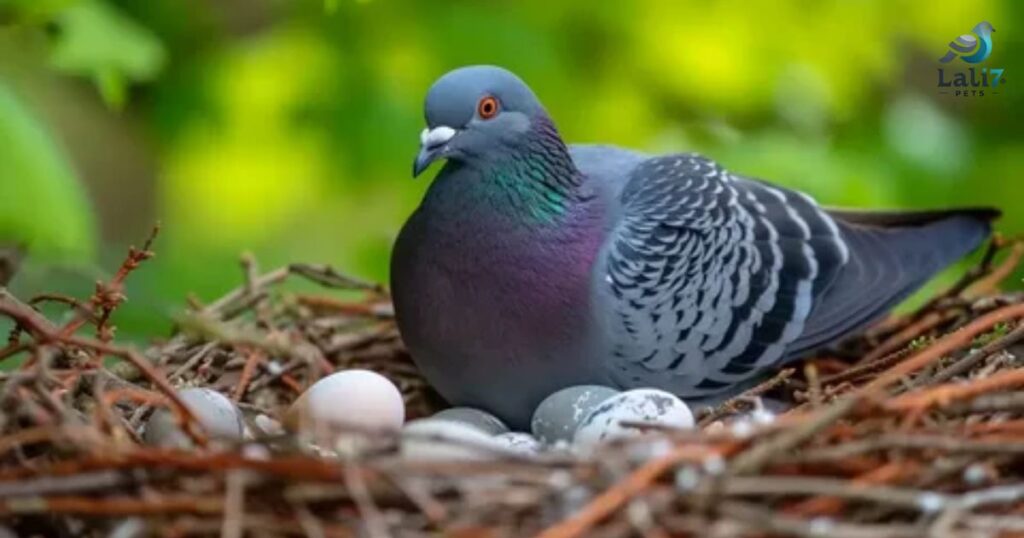When people think of pigeons, they often picture them fluttering around city squares or racing through the skies. But behind every pigeon’s life cycle is the fascinating story of the eggs of pigeon, small white treasures that carry new life. Whether you are a pigeon breeder, a racing pigeon fancier, or someone who simply found pigeon eggs on your balcony, understanding how these eggs work can help you appreciate the birds even more deeply.
In this guide, we’ll cover everything, from pigeon egg hatching time to eggs of pigeon benefits, what to do if pigeon eggs do not hatch after 21 days, and even if it’s good or bad when a pigeon lays eggs on your balcony. Along the way, you’ll find step-by-step advice, anecdotes, and helpful links to trusted resources.
Eggs of Pigeon Benefits
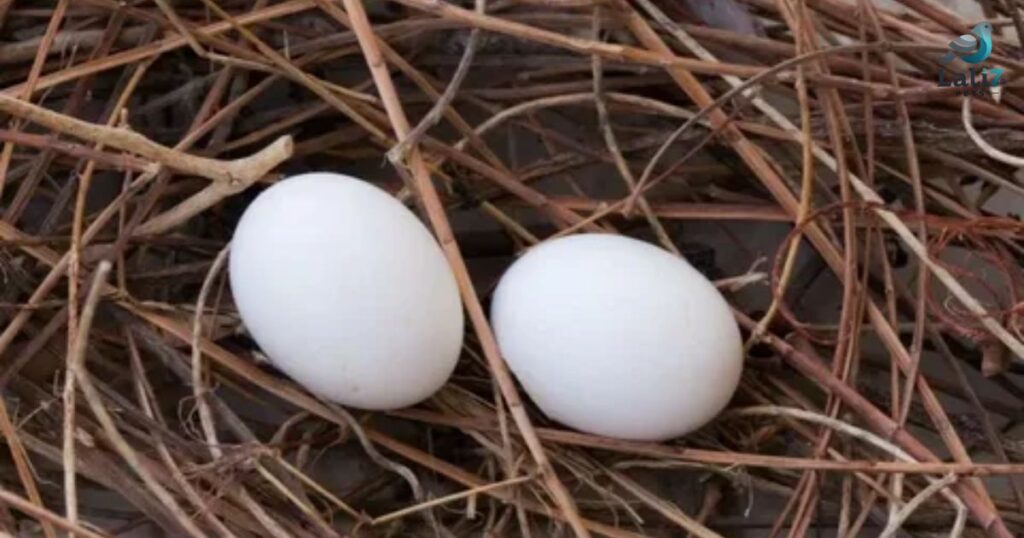
Many cultures around the world have long believed in the benefits of pigeon eggs. In traditional medicine, these eggs are said to be packed with nutrients and used for strengthening the body. Some people believe that eating pigeon eggs helps improve stamina, eyesight, and fertility.
While modern science has limited studies on pigeon egg nutrition, pigeon enthusiasts often highlight their similarity to quail eggs, which are rich in protein, vitamins, and minerals. According to Healthline’s guide on bird eggs, small bird eggs like quail (and similarly pigeon) can be beneficial when consumed in moderation.
That said, the primary benefit most fanciers see is the continuation of a healthy pigeon bloodline. Every egg carries the possibility of a future champion racer or a beloved pet.
Pigeon Eggs for Sale
If you are new to breeding or simply curious, you might come across ads for pigeon eggs for sale online. However, here’s an important fact: eggs without proper incubation will not hatch on their own.
Buying pigeon eggs is typically useful only if you already have a foster pigeon pair ready to incubate them, or if you own an artificial incubator. Trusted incubator brands like Brinsea or Novital are commonly used by breeders.
⚠️ Pro Tip: Always buy from reliable breeders. Unscrupulous sellers may offer “fertile eggs” that are either infertile or too old to hatch. If you’re serious, connect with pigeon clubs or racing associations to find authentic sources.
Pigeon Eggs Not Hatching After 21 Days
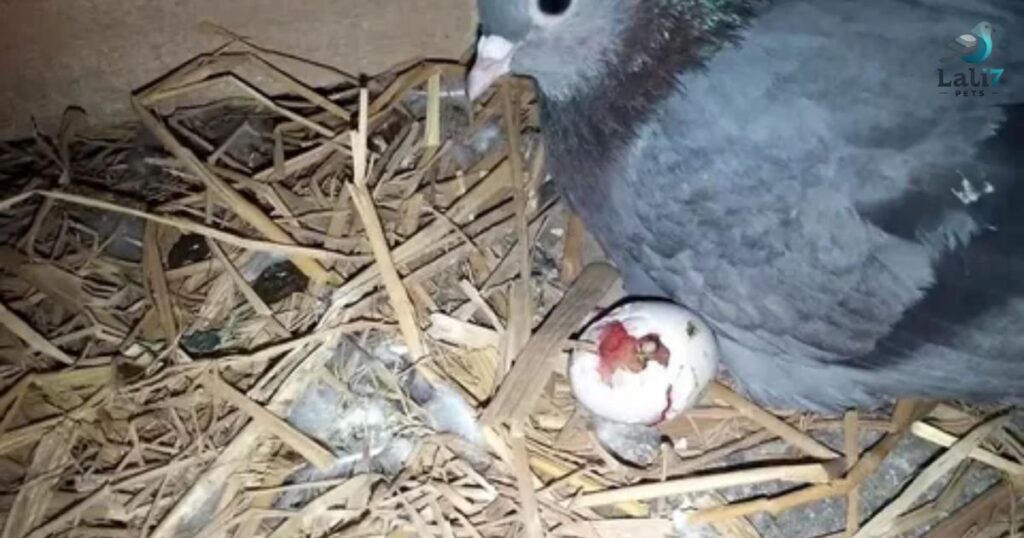
One of the most common concerns for breeders is when pigeon eggs do not hatch after 21 days. Normally, the incubation period for pigeons ranges between 17 to 19 days, but sometimes it can extend slightly.
Here are some reasons why eggs might not hatch:
- Infertility – Sometimes the mating wasn’t successful.
- Temperature issues – If foster parents didn’t sit properly or if the incubator was not stable.
- Humidity problems – Low or high humidity can cause the embryo to fail.
- Egg too old – Fertility decreases if an egg isn’t incubated within a few days of being laid.
If you candle the egg around day 10 (using a small light in a dark room), you should see red veins if it is fertile. Learn more about this process with candling eggs.
A breeder once shared his story of waiting anxiously for 25 days, only to find the eggs were clear (unfertilized). That’s why candling is a key step to avoid unnecessary waiting.
Pigeon Egg Hatching Time
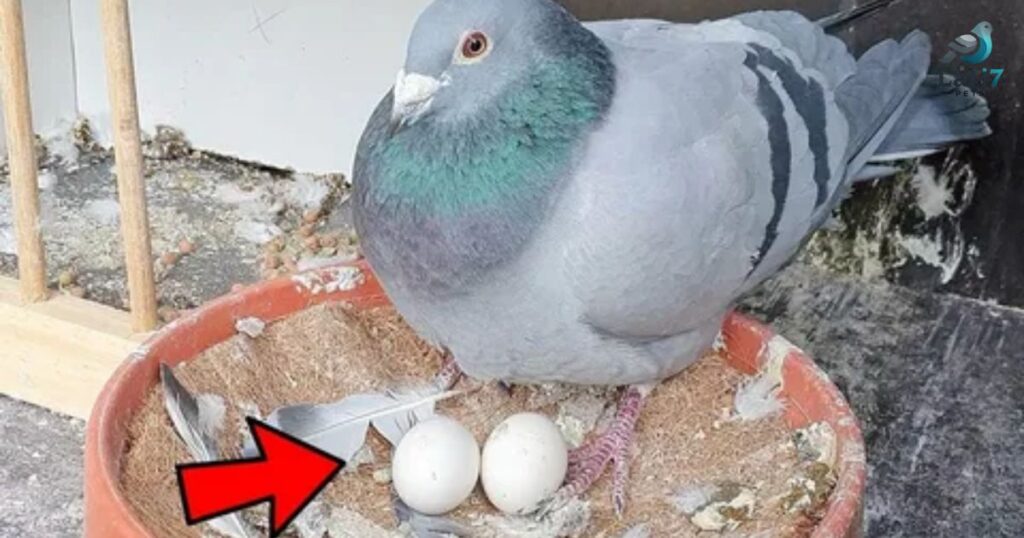
The average pigeon egg hatching time is between 17 to 19 days from the start of incubation. Both male and female pigeons take turns sitting on the eggs, usually in shifts — males during the day and females at night.
Here’s a simple timeline:
- Day 1–10: Embryo development begins, blood vessels form.
- Day 11–16: The chick develops feathers, wings, and starts moving.
- Day 17–19: The chick begins to “pip” (crack) the shell and eventually emerges.
For artificial incubation, maintaining a temperature of 37.2–37.5°C and humidity of 55–60% is crucial. A few days before hatching, humidity should be raised to 70–75% to soften the shell.
How Many Times Pigeon Lay Eggs in a Year
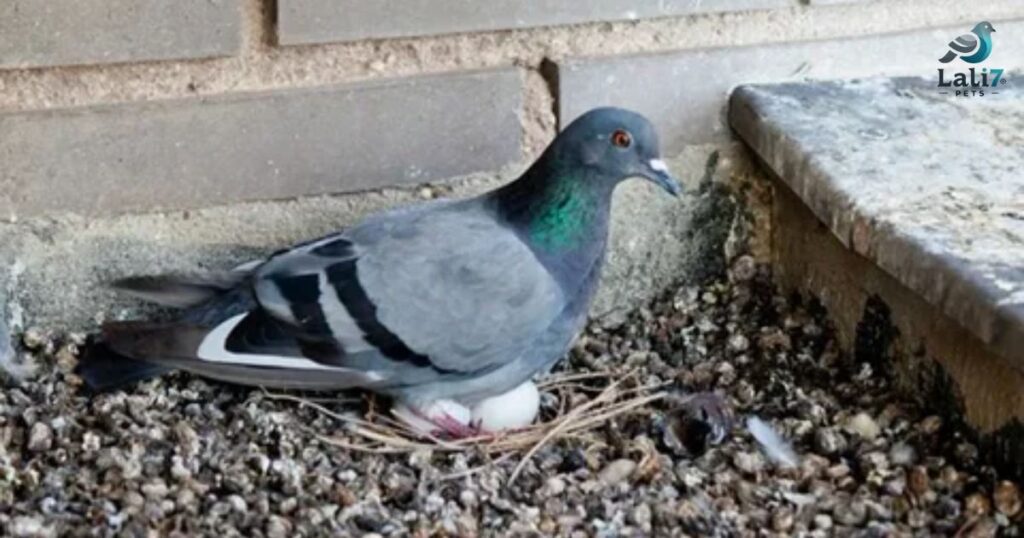
A fascinating part of pigeon biology is their ability to reproduce multiple times. On average, pigeons lay eggs around 6–8 times per year under good conditions. Each clutch usually contains two eggs, laid about 24–48 hours apart.
Experienced breeders often note that pigeons are very consistent; if conditions are favorable, they can lay eggs almost every month. This makes pigeons one of the most reliable breeders among birds.
However, too many breeding cycles without rest can exhaust the parent pigeons. Many fanciers recommend giving them a break after several clutches to maintain their health and vitality.
For more on pigeon breeding cycles, check out Pigeonpedia’s breeding guide.
Pigeon Laying Eggs on My Balcony Is Good or Bad
One of the most asked questions from city dwellers is: “Is it good or bad if a pigeon lays eggs on my balcony?”
The answer depends on perspective:
- Good: Pigeons are harmless, peaceful birds and their nesting can bring a sense of nature to your home. Some cultures even consider it lucky or a blessing.
- Bad: Pigeon droppings can be messy, and some people worry about cleanliness. Once pigeons start nesting, they are very loyal to that spot and may return year after year.
If you choose to allow them, make sure to keep the area clean and safe from predators like cats or crows. If not, gently discourage nesting before the eggs are laid by removing nesting materials.
Learn more about urban pigeon nesting habits on BirdLife International.
FAQ on Eggs of Pigeon
Are pigeon eggs good to eat?
Yes, pigeon eggs are edible and considered nutritious in some cultures, though they are smaller and less commonly eaten than chicken eggs.
How many eggs do pigeons lay?
Pigeons usually lay two eggs per clutch, laid about 24–48 hours apart.
Can I touch pigeon eggs?
Yes, you can touch pigeon eggs gently, but excessive handling may stress the parents or affect incubation.
How many days will pigeon eggs hatch?
Pigeon eggs hatch in about 17–19 days, depending on temperature and incubation conditions.
What month do pigeons lay eggs?
Pigeons can lay eggs throughout the year, especially in warm climates, though peak laying often happens in spring and summer.
Final Thoughts
The eggs of pigeon are more than just fragile white shells — they are the beginning of a story that can lead to strong racers, loyal pets, or simply a deeper connection with nature. From understanding pigeon egg hatching time to solving the problem of pigeon eggs not hatching after 21 days, knowing the basics empowers you to care for these eggs with confidence.
Whether you are buying pigeon eggs for sale, curious about eggs of pigeon benefits, or wondering how many times pigeon lay eggs in a year, this guide has given you the tools to make informed decisions.
So next time you spot pigeon eggs on your balcony, pause for a moment. Inside those little shells could be the next generation of a bird that has shared history with humans for thousands of years.

